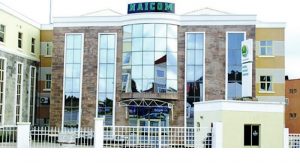Joy Agwunobi
Nigeria’s pension fund industry kicked off 2025 on a strong note, recording a significant asset growth of N349.25 billion in January alone.
This increase pushed the total Net Asset Value (NAV) of pension assets to N22.86 trillion, up from N22.51 trillion in December 2024, representing a 1.54 per cent month-on-month growth.
The data, published in an unaudited report by the National Pension Commission (PenCom), reflects consistent momentum in the industry. On a year-on-year basis, total pension assets rose by N3.33 trillion—an impressive 17.05 per cent jump from N19.53 trillion reported in January 2024.
The report, which aggregates data from approved existing schemes, Closed Pension Fund Administrators (CPFAs), Retirement Savings Accounts (RSAs), unremitted contributions with the Central Bank of Nigeria (CBN), and legacy funds, shows the industry’s performance across board.
As of the end of January 2025, the number of RSA holders had also grown marginally to 10,615,028—an increase of 0.31 per cent from the 10,582,299 recorded in December 2024, this uptick reflects continued interest and trust in the formal pension system by Nigerian workers.
Under the multi-fund structure introduced to better align risk exposure with contributors’ age and profile, Fund II continues to hold the largest share of pension assets. In January, it accounted for N9.431 trillion or 41.26 per cent of the industry’s total NAV. Other notable allocations include Fund III with N6.014 trillion—up 1.62 per cent from the previous month—and Fund IV with N1.674 trillion, representing a 3.64 per cent rise.
Investment allocation within the industry remained broadly diversified. Domestic ordinary shares continue to play a central role in portfolio decisions, with a total value of N2.41 trillion as of January 2025, indicating ongoing confidence in the local equities market.
Federal Government of Nigeria (FGN) securities made up the lion’s share of asset classes, totaling N14.31 trillion and representing 62.7 per cent of all pension fund investments. Other key components of the pension fund portfolio include: corporate debt securities – N2.25 trillion (9.98%), equities (general) – N2.51 trillion (9.96%), money market instruments – N2.22 trillion (9.27%), ordinary shares in local companies – N2.406 trillion (10.53%) and state government securities – N248.80 billion
This diversified asset allocation is aimed at balancing risk and maximising returns for contributors across different stages of their retirement planning.
Despite overall growth, certain asset classes experienced marginal shifts during the reporting period. Money market instruments declined slightly by 1.50 per cent, dropping from N2.215 trillion in December 2024 to N2.182 trillion in January 2025.
Within this category: Fixed deposits and bank acceptance gained 1.13 per cent, Commercial papers declined by 13.33 per cent and Foreign money market instruments saw a sharp 26.07 per cent drop.
Meanwhile, state government securities also dipped by 0.82 per cent to N248.80 billion, even as allocations to supranational bonds surged 34.09 per cent, rising to N27.851 billion.
Amid these gains, PenCom continues to urge wider adoption of the Contributory Pension Scheme (CPS) by state governments. As of December 2024, only 11 states and the Federal Capital Territory had fully implemented the CPS. These include Lagos, Kaduna, Ekiti, Edo, Ondo, Delta, Benue, Anambra, and Jigawa.
According to PenCom, states yet to implement the scheme—such as Akwa Ibom, Borno, Kwara, Plateau, Cross River, and Yobe—are being encouraged to pass the necessary laws and begin full implementation to ensure a secure and efficient pension system for their workforce.
The current structure of Nigeria’s pension system is rooted in the Pension Reform Act of 2004, which revolutionized pension administration by mandating joint contributions by employers and employees into a managed retirement savings account. The Act’s objective was to ensure long-term sustainability, transparency, and prompt payment of retirement benefits.
With the January 2025 figures pointing to a promising start, the resilience and growth of Nigeria’s pension industry stand as a testament to the system’s capacity to adapt, evolve, and deliver long-term value to contributors nationwide.









